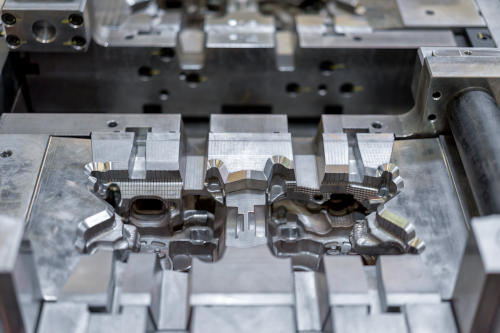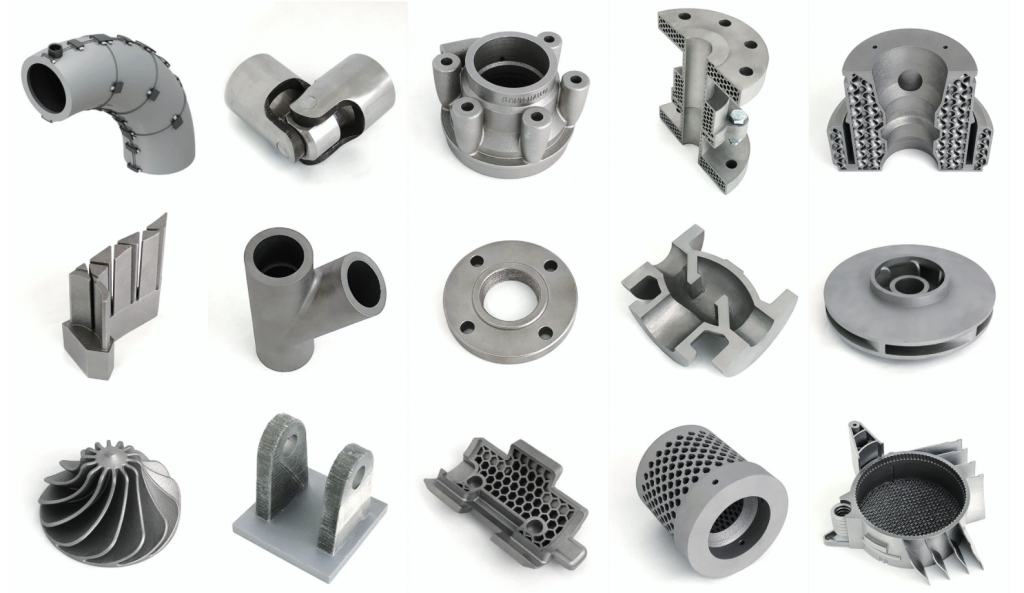The technology behind the success of every Casting Foundry
Best Practices for Maintenance and Applications in the Light Weight Aluminum Factory Field: A Detailed Overview
Maintaining equipment in the light weight aluminum shop market is crucial for operational success. Regular evaluations and anticipating maintenance can substantially lower downtime and improve safety. Advanced innovations, such as IoT and information analytics, play a crucial function in this procedure. Nevertheless, recognizing the full scope of finest methods calls for a better assessment of specific methods and their effect on efficiency. What are the vital parts that add to a trustworthy maintenance structure?
Relevance of Regular Upkeep in Aluminum Foundries
Regular maintenance plays an essential duty in the efficient procedure of aluminum factories. By methodically servicing and evaluating tools, factories ensure peak performance and long life of equipment. Regular upkeep activities, such as component, cleaning, and lubrication substitute, help stop unanticipated malfunctions that can cause costly downtime.
Regular checks improve work environment safety by recognizing potential threats before they rise into severe issues. Equipment that is well-kept operates much more effectively, causing boosted item quality and lowered waste. Additionally, adherence to an organized upkeep routine can sustain conformity with industry policies, thereby promoting a credibility for integrity and quality within the marketplace.
Carrying Out Anticipating Maintenance Techniques
Predictive upkeep methods take the principles of routine upkeep a step further by leveraging information analytics and progressed tracking technologies. In light weight aluminum foundries, these techniques enable drivers to prepare for tools failings before they take place, thus lowering unexpected downtimes and optimizing functional effectiveness. By making use of sensing units and IoT devices, real-time information can be accumulated on device performance, enabling for the recognition of possible concerns through predictive analytics.
Optimizing Melting and Pouring Processes
Reliable melting and pouring processes are essential for making the most of productivity and assuring the top quality of light weight aluminum castings. To boost these processes, shops should concentrate on specific temperature control throughout melting, as this straight influences the metallurgical buildings of the alloy. Making use of innovative melting innovations, such as induction and resistance melting, can boost energy effectiveness and lower cycle times.
Moreover, implementing automated pouring systems lessens human mistake and maintains consistency in the putting process. Appropriate mold prep work, including adequate preheating, is necessary to prevent thermal shock and improve mold durability.

Enhancing Security Methods in Foundry Workflow
Focusing on safety in aluminum factory procedures is important for shielding workers and ensuring an effective atmosphere. Reliable security methods consist of regular training sessions that highlight the importance of individual protective devices (PPE), such as goggles, gloves, and headgears. Additionally, the establishment of clear emergency procedures is vital in managing potential accidents.
Normal evaluations of devices and equipment aid identify hazards before they escalate right into significant concerns. Carrying out a durable coverage system urges workers to interact safety and security worries without fear of repercussion. Additionally, fostering a society of safety warranties that every employee comprehends their duty in preserving a safe and secure office.
On top of that, assuring correct air flow and surveillance air high quality can alleviate direct exposure to unsafe fumes and dirt. By strengthening these practices, aluminum foundries can substantially minimize the risk of mishaps and create an environment where workers feel valued and safe, inevitably boosting general operational effectiveness.
Leveraging Technology for Improved Efficiency
Using innovative innovation has actually become increasingly get more info important for aluminum foundries aiming to enhance functional efficiency. Automation and robotics play a vital duty in streamlining production processes, decreasing labor prices, and minimizing human mistake. Carrying out real-time tracking systems enables the constant evaluation of equipment performance, enabling aggressive maintenance and minimizing downtime.
Furthermore, the assimilation of information analytics gives valuable understandings into functional operations, helping with far better decision-making and source allocation. Anticipating analytics can determine prospective failings prior to they take place, more enhancing maintenance routines.
Additionally, embracing innovative melting and spreading innovations improves power efficiency and material yield, which are essential for sustainability in the industry. By welcoming these technological improvements, light weight aluminum factories can not just increase performance but also keep an one-upmanship in an increasingly requiring market (Aluminum Casting). Ultimately, leveraging innovation is pivotal in driving innovation and improving overall operational efficiency within the industry

Frequently Asked Questions
What Prevail Signs of Devices Wear in Aluminum Foundries?
Common indicators of equipment wear in aluminum foundries include uncommon sounds, decreased effectiveness, increased resonance, overheating parts, leaks, and noticeable rust. These indications commonly signal the requirement for maintenance or prospective substitute to prevent costly downtime.
Just How Can I Train Team for Effective Maintenance Practices?
To train team for reliable maintenance techniques, one can apply hands-on workshops, develop detailed guidebooks, encourage mentorship programs, and perform normal assessments to examine skills and understanding, making sure all employees understand upkeep procedures completely.
What Are the Environmental Rules for Aluminum Foundries?
Light weight aluminum factories go through various environmental guidelines, including emissions control, waste monitoring, and source preservation. Conformity guarantees marginal ecological impact, advertising sustainability while sticking to neighborhood, national, and international environmental standards and guidelines.
How Do Shops Take Care Of Waste and Recycling of Light weight aluminum?
Shops handle waste and recycling by carrying out systems for gathering scrap aluminum, making use of innovative separation modern technologies, and collaborating with reusing facilities to guarantee reliable recovery processes, thus minimizing ecological impact and advertising sustainability within the sector.
What Are the Costs Linked With Applying Advanced Technologies?
Applying advanced innovations in foundries sustains significant costs, consisting of first investment, training, and maintenance expenses. Nevertheless, the lasting advantages, such as raised efficiency and minimized waste, usually validate these expenses, bring about improved earnings.
Regular upkeep plays a necessary duty in the efficient operation of aluminum foundries. In aluminum factories, these techniques allow drivers to anticipate equipment failures before they happen, therefore decreasing unexpected downtimes and enhancing functional efficiency. Utilizing advanced technology has actually become significantly necessary for light weight aluminum factories aiming to enhance operational performance. Typical indications of equipment wear in light weight aluminum factories include uncommon sounds, lowered effectiveness, raised vibration, overheating elements, leakages, and noticeable rust. Applying advanced modern technologies in factories incurs significant expenses, consisting of initial financial investment, training, and upkeep costs.